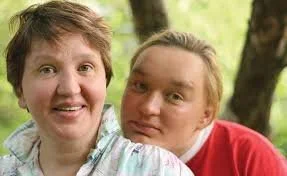Living with FASD…
Sometimes, families living with FASD can feel overwhelmed…
… However, there are many who share your experience, and want to offer support.
If you or your family is in a medical crisis, call 911 immediately.
If you are in a mental health crisis, call the Provincial
Mental Health and Addictions Crisis Line: 1-888-429-8167 or visit: https://mha.nshealth.ca/en/services/provincial-mental-health-and-addictions-crisis-line .If you want ongoing support from others with FASD lived experience, visit our FANS Parent Support Facebook page:
Help for families living with FASD
Individuals with FASD are constantly juggling their strengths and challenges throughout their lives. They need help. Due to cognitive, executive functioning and adaptive living deficits often associated with FASD, caregivers must be constantly vigilant of those they are guiding through life. This often means constant supervision and “eyes-on” observation. Recognizing that FASD is a spectrum, the reality is that most people with FASD will need some degree of oversight their entire lives. This can be exhausting and detrimental to the caregiver's health. It can also alter healthy family dynamics. That is why it is important to search out others who share your experience… and they are out there waiting to help.
Children and Adolescents with FASD need:
structure
supervision
help with emotion regulation
safety boundaries
school support
medical attention (trauma and ongoing health issues)
child welfare assistance
Fathers and FASD
Adults with FASD need:
structure
supervision
education support
employment support
housing assistance
financial direction
help to find and navigate social service systems
mental health support
help to find and navigate medical systems
legal assistance
It has long been understood that fathers can support their partners during their pregancy by supportive abstinence. However, new information says we should reconsider prenatal paternal alcohol consumption for other reasons. Although FASD, by definition is exposure of the fetus to alcohol during pregnancy, new research is emerging that identifies brain, behaviour and health issues when fathers consume alcohol prior to conception. There is still much research needed in this area, however it indicates that we should consider paternal alcohol consumption as a factor of healthy pregnancies. A recent BBC article gives us more about current research.
Click on the button below.
Caregivers and families of those with FASD need personal and professional support. Let us help!
Go to our resource section for some excellent articles, stories, and videos that will help you understand FASD and your the family.
Helping Adults with FASD
Children with FASD grow up to be adults with FASD. The transition through adolescence accents the “dysmaturity” characteristic of FASD; people with FASD often function at half their chronological age. Again, FASD is a spectrum, so some people living with FASD may appear to “mature”, but may still carry the cognitive, executive functioning, and adaptive living challenges that started as a child.
Also, current research tells us that 400 co-occurring health disorders make life very challenging physically for people with FASD.
About adults with FASD:
many have mental health problems (over 90%)
will have full-body health challenges many times more prevalent than the regular population
may have disrupted school experiences and, therefore will often not have completed education.
may become involved with the judicial system, and have great difficulty negotiating the complexities of the courts.
may have trouble finding social services.
may not be able to locate much-needed medical services.
will be part of the homeless population.
will have difficulty finding and keeping employment.
will be unable to live independently.
Adults with FASD can become productive members of society, provided they get the supports they need.
See our Resource Section for adult FASD articles and videos.





